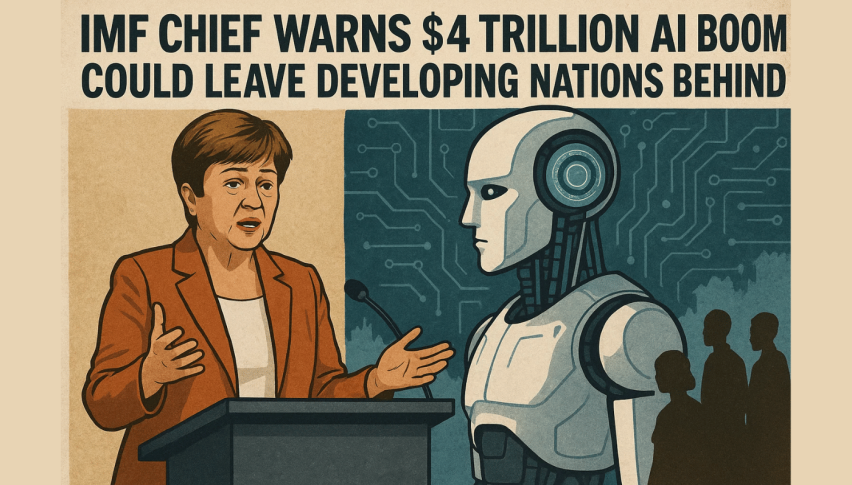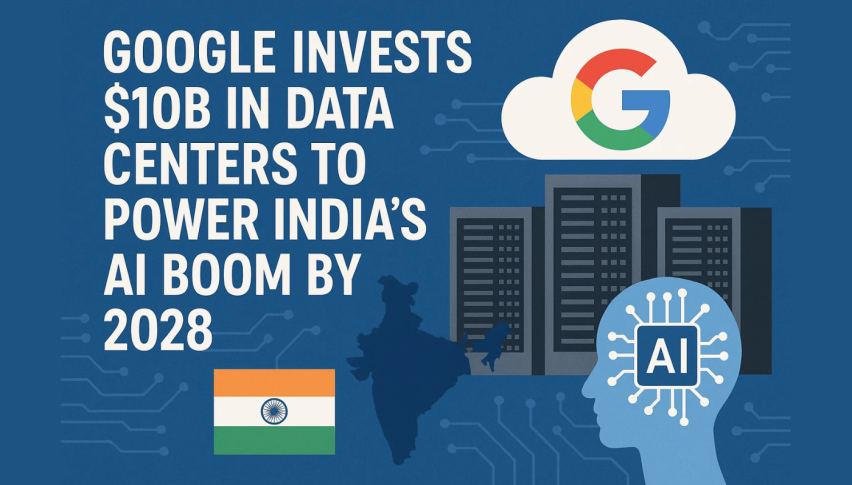IMF Chief Warns $4 Trillion AI Boom Could Leave Developing Nations Behind
IMF Managing Director Kristalina Georgieva has sounded a high-pitched warning bell that the rapid advance of artificial intelligence...

Quick overview
- IMF Managing Director Kristalina Georgieva warns that developing countries are being left behind in the AI revolution due to infrastructure and digital literacy issues.
- She highlights the risk of a widening gap between rich and poor nations, with advanced economies reaping the benefits of AI while smaller countries struggle.
- The IMF has introduced an AI Readiness Index to assess how well countries can adapt to AI advancements and emphasizes the need for investment in digital infrastructure and education.
- Georgieva calls for global cooperation to ensure that the benefits of AI are inclusive and do not lead to a repeat of past financial crises.
IMF Managing Director Kristalina Georgieva has sounded a high-pitched warning bell that the rapid advance of artificial intelligence is rapidly leaving developing countries in the dust. She took the opportunity to flag up the growing concern over an increasingly large and widening gap in AI technology between rich and poor countries at the IMF and World Bank Annual Meetings.
Now while AI has got a lot of people excited about the trillions that its going to pump into the economy and the wealth of innovations we can look forward to – Georgieva did issue a stark warning that all these benefits are being grabbed by the so called “first world” countries like the US and China, while developing nations are getting stuck behind the starting line due to all sorts of infrastructure problems and basic digital illiteracy.
“The bit of groundwork that needs to get done in terms of regulating and getting the ethics right with all this AI stuff is still very much to come,” she said. “We’re messing up where it matters most.”
And she made it clear that if we all don’t pull together on this one that we can actually be headed for a much deeper division between rich and poor, in terms of access to the kind of education and opportunities that will let them take part in this new high-tech world.
Uneven Progress and Global Worry
The IMF’s top experts have been crunching the numbers and their findings suggest that this AI revolution – one that is going to add a staggering $4 trillion to global GDP by 2030 – is very much being driven by a handful of economies with the advanced digital infrastructure and deep pockets to make it all happen. And with the lion’s share of the investment and innovation heading to the well off countries, what we’re seeing is the smaller countries with less resources getting increasingly dependent on importing all the tech they need.
Key things that are gripping Georgieva’s attention include:
- A lack of clear rules and laws to govern this whole AI business
- Developing nations really are struggling to get the basic digital infrastructure like high speed internet and reliable networks in place.
- There’s a huge gap in who gets to have access to the tech and education needed to take advantage of AI
- And not least there’s a growing realisation that the prices of shares in AI driven companies are getting a bit out of control – echoing the worry that there could be a repeat of the dot-com bubble.
The IMF is concerned that if there was a sudden loss of confidence in the AI driven stock market, it could set off a financial shockwave that would hit emerging economies the worst. Georgieva warns that we could be headed for a situation where the unbridled optimism about AI stocks leads to a repeat of the sort of reckless risk taking that got us into trouble in the early 2000s.
The IMF Wants to see Ethical and Inclusive AI
To give the countries that need a boost a bit of a helping hand the IMF has come up with an AI Readiness Index to help evaluate how well they are able to keep up with the AI revolution.
- How well is their digital infrastructure and connectivity working?
- Do their labour markets and education systems have the skills needed to compete in this new world?
- Are they being innovative and adapting to all the new tech that is coming out?
- And how are they doing on getting the regulatory and ethics frameworks in place?
The early results from this index are pretty telling – most of the poorer countries are really struggling when it comes to getting the rules and laws to govern all this new tech right.
Georgieva has a hard message for the world’s leaders: if you want to stop developing nations getting left behind then you need to get serious about investing in digital infrastructure and getting your people the skills they need to thrive in this new world.
“The first thing we need to do to get ready for the AI future is to sort out our digital infrastructure and get people skilled up on the technology,” she said. Put another way, staying still is not an option – you have to be moving forward. And she ended by saying that this AI revolution has got to be something that lifts all boats – and not just the biggest and most expensive yachts.
- Check out our free forex signals
- Follow the top economic events on FX Leaders economic calendar
- Trade better, discover more Forex Trading Strategies
- Open a FREE Trading Account
- Read our latest reviews on: Avatrade, Exness, HFM and XM

